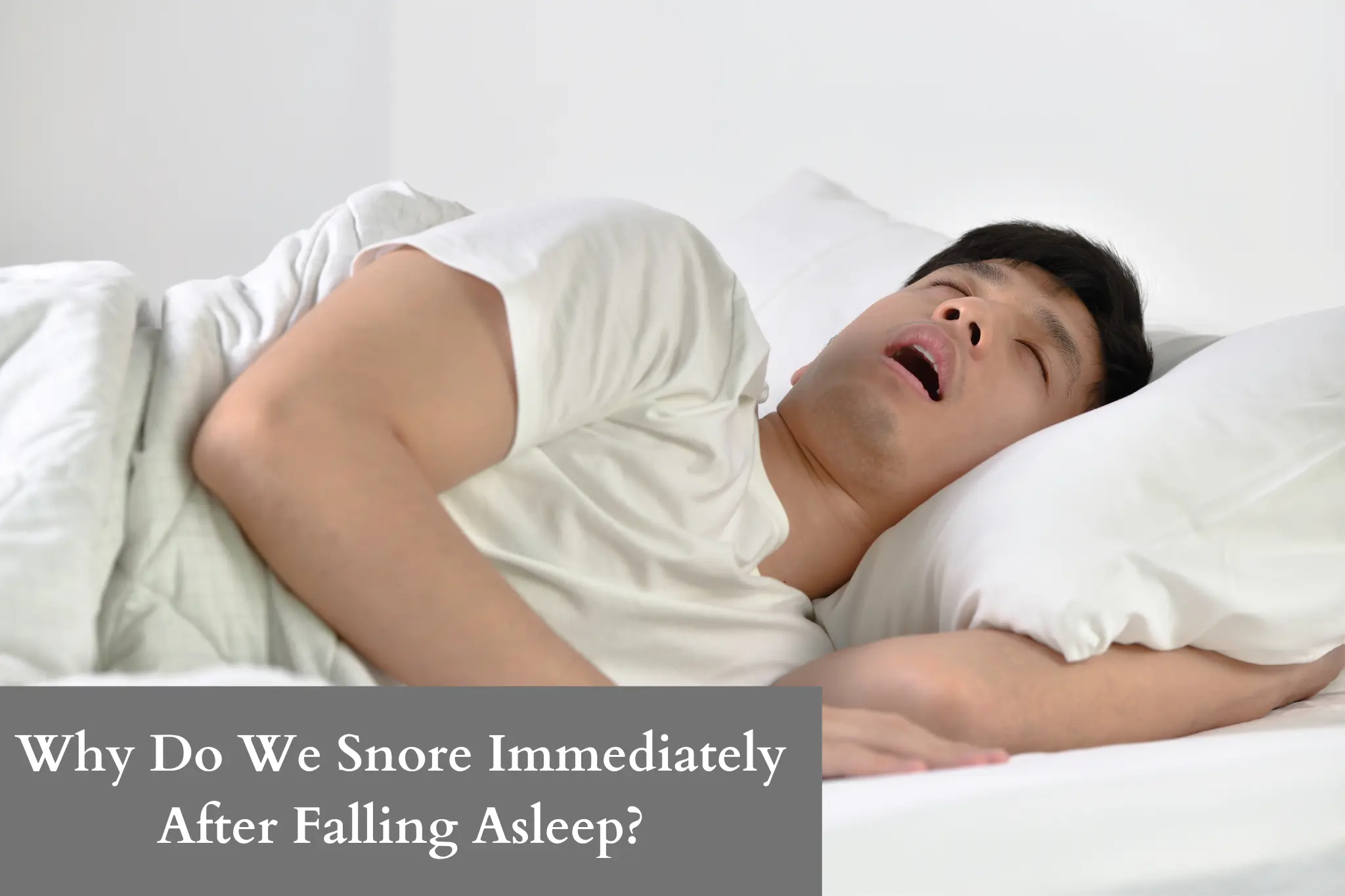Understanding the Phenomenon: Why Do We Snore Immediately After Falling Asleep?
Snoring is a common nighttime occurrence that affects both the snorer and their sleep partner. While many people associate snoring with deep sleep, it’s not uncommon to hear the telltale sounds immediately after falling asleep. Have you ever wondered why this happens?
In this blog post, we will explore the phenomenon of snoring upon falling asleep and the factors that contribute to it.
The Sleep Cycle and Snoring
To understand why we snore immediately after falling asleep, it’s essential to grasp the basics of the sleep cycle. The sleep cycle consists of different stages, including rapid eye movement (REM) and non-REM sleep. These stages cycle throughout the night, with each serving a unique purpose.
When we fall asleep, we typically enter the non-REM stages first. During this initial stage, our muscles relax, and our breathing becomes more rhythmic and regular. As we transition from wakefulness to sleep, our body goes through an adjustment phase. It’s in this transitional phase that snoring can occur.
Relaxation of Throat Muscles
One of the primary reasons for snoring immediately after falling asleep is the relaxation of throat muscles. When we are awake, our throat muscles are actively engaged, helping to maintain an open and unobstructed airway. However, as we drift into sleep, these muscles naturally relax.
The relaxation of throat muscles can lead to a narrowing of the airway, which, in turn, can cause turbulence in the airflow as we breathe. This turbulence is what produces the sound of snoring. The level of snoring can vary from person to person, and it can be influenced by various factors, such as anatomy and lifestyle.
Factors Contributing to Snoring
Anatomical Factors
Certain anatomical factors can predispose individuals to snore immediately after falling asleep. These factors include:
- Nasal congestion: Blockages in the nasal passages can force individuals to breathe through their mouths, increasing the likelihood of snoring.
- Throat and palate shape: A narrow throat or an elongated uvula (the tissue that hangs down at the back of the throat) can contribute to airway obstruction and snoring.
- Obesity: Excess fat in the neck and throat can put pressure on the airway, leading to snoring.
- Tonsils and adenoids: Enlarged tonsils and adenoids, especially in children, can obstruct the airway, causing snoring.
Lifestyle Factors
Apart from anatomical factors, lifestyle choices can also play a significant role in snoring upon falling asleep. Some common lifestyle factors that contribute to snoring include:
- Alcohol and sedatives: Consuming alcohol or sedative medications before bedtime can relax the muscles further, making snoring more likely.
- Sleep position: Sleeping on your back can lead to snoring, as it allows the base of the tongue and soft palate to collapse to the back wall of the throat.
- Smoking: Smoking irritates the throat and airway, increasing the risk of snoring.
Preventing Snoring at Sleep Onset
If you or your sleep partner are concerned about snoring immediately after falling asleep, here are several steps to help prevent it:
- Sleep on Your Side: Opt for a side-sleeping position to prevent the tongue and palate from collapsing to the back of the throat.
- Maintain a Healthy Weight: If you’re overweight, losing excess weight can reduce the pressure on your airway, decreasing the likelihood of snoring.
- Avoid Alcohol and Sedatives Before Bed: These substances relax throat muscles, so it’s advisable to abstain from them, especially in the evening.
- Stay Hydrated: Proper hydration is essential; it can alleviate snoring, so make sure to drink enough water throughout the day.
- Address Nasal Congestion: If you suffer from allergies or nasal congestion, consider using saline nasal sprays or a humidifier to keep your nasal passages clear and reduce snoring.
Final Thoughts
Comprehending the reasons behind immediate post-sleep snoring is the initial stride in managing this concern. Identifying the root causes and implementing lifestyle changes can lead to quieter, more restful nights.
However, should snoring persist and negatively impact your sleep quality, seeking expert guidance from a healthcare professional or a specialist in snoring treatment in Pune, Dr. Seemab Shaikh, is advisable. Their evaluation and guidance can be instrumental in addressing this issue effectively








